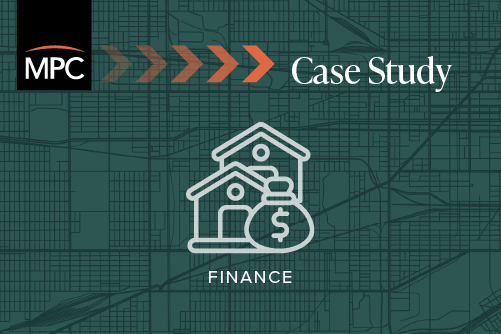Residential Rental License Program
Addison
Housing Program

Program background
The Residential Rental License Program was started in the early 1980s as a tool to maintain strong property values in neighborhoods with a variety of housing stock, including both rental and ownership housing. Deferred maintenance led to deteriorating conditions, inviting blight and crime to areas that were suffering from disinvestment. Unable to satisfy the volume of service requests, the licensing program was put in place to hold landlords accountable to tenants and preserve the quality of rental housing in the village.
Rental housing has traditionally made up a large percentage of Addison’s overall housing stock. With the recent infusion of single family homes and condos into the rental market, rental housing now makes up about a third of Addison’s 12,000 dwelling units. Three Village inspectors support the licensing program, which is funded through the collection of annual licensing fees, inspection fees and other related fines.
How it works
The continuing success of Addison’s licensing program is anchored by a grading system that provides incentives for landlords to maintain their properties up to Village code. Each year, all landlords are required to apply for an annual residential rental license by the end of April, at the cost of $75 per dwelling/dwelling unit plus an additional flat fee that ranges from $50 to $150 based on the number of units in the building. This annual license fee includes a full annual inspection, but does not cover any subsequent costs that a landlord may incur after their inspection takes place.
The annual rental inspection includes the inspection of all exterior areas, 20 percent of all dwelling units in a building, and all other common interior areas. The inspection grade that a building receives is determined by dividing the total number of violations at the time of inspection by the total number of inspection areas (generally the sum of interior units, one interior common area and the exterior common area that have been inspected). Landlords can earn an inspection grade of “very good,” “satisfactory” or “unsatisfactory”. A building that has one or less violations receives an inspection grade of “very good,” which exempts the building from the next annual license fee and inspection process. A building that has more than one but not more than three violations receives a grade of “satisfactory,” requiring one additional exterior-only inspection in that same year. Buildings that have more than three violations receive a grade of “unsatisfactory,” where a semi-annual inspection is conducted of all areas and two exterior-only inspections take place in the same license year. Landlords whose properties receive “satisfactory” and “unsatisfactory” grades are subject to all of the additional fees charged for exterior-only, semi-annual, and reinspection processes. There is a formal procedure in place for property owners who wish to appeal an inspector’s decision.
Property owners that are required to apply for a rental license must also attend a mandatory crime-free multi-housing training and utilize a crime-free lease addendum. This collaborative effort between Addison’s police and community development departments has resulted in stronger landlord-tenant relations and safer neighborhoods.
Public involvement
The Residential Rental License Program was changed back in 2000–2001 to include additional inspections for landlords who were not in full compliance with established maintenance standards. Property owners had mixed reactions to this proposal, but as soon as the benefits of the grading system were realized, support for the program grew.
A tenant-landlord commission comprised of village tenants, landlords and representatives from management companies was formed to generate feedback on the program. The commission schedules meetings monthly to ensure that the Village code is up to date and effectively serving landlords and tenants. There has been a lot of positive feedback from the commission on the support role that the police department, fire department and code enforcement staff have played in responding to troubled properties.
Contact
Department of Community Development, Village of Addison
630-693-7570, www.addisonadvantage.org
-
Goal
Set higher benchmark for property maintenance and increase safety, living conditions and health outcomes for residents
-
Target
Single and multi-family rental properties
-
Financing
Total cost to run the program is about $300,000, all funded through annual licensing fees and supplementary fees related to inspection.
-
Successes
- About 50 percent of rental sites receive an inspection grade of “very good”, up from about 25 percent when the program first started.
- The number of unsatisfactory rental sites has dropped over 10 percent since the program’s inception
- In partnership with the crime-free multi-housing program, crime in Addison has gone down and there has been a reduction in police calls for service
-
Lessons learned
Providing incentives for landlords to maintain their properties has led to improved tenant-landlord relations, and has been an effective tool in the preservation of quality rental housing.